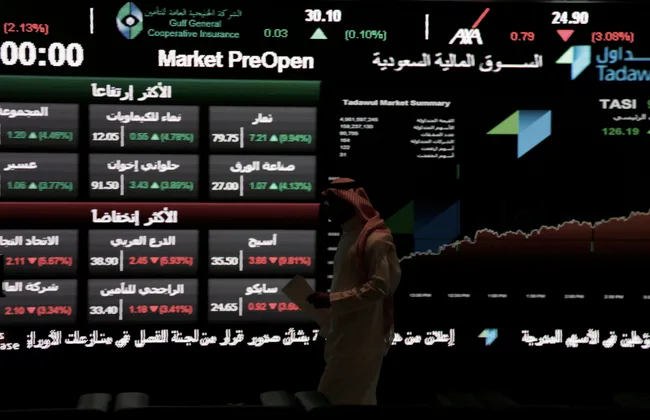Saudi Arabia’s Capital Markets Authority has proposed reforms to broaden the investor base of the kingdom’s junior stock market in an attempt to increase liquidity.
The changes relax the requirements to register as a “qualified investor” on Nomu, the parallel alternative to the Tadawul, and extend this designation to board and committee members of listed companies.
They also ease the criteria on individual investors by reducing the minimum transaction threshold over the previous 12 months from SAR40 million to SAR30 million.
Nomu, which has less stringent issuer requirements than the main market including on disclosures and financial statements, limits who is allowed to invest to discourage retail investors with less expertise.
However “investor restriction leads to low liquidity,” said Shahrukh Saleem, a portfolio analyst at asset manager Mashreq Capital. “If they’re reducing it, it’s to address the fact that already there is low liquidity which stops a lot of other investors who are actually eligible to invest.”
According to analysts, low liquidity is the biggest challenge facing Nomu, although total capitalisation has grown by 10 percent and the market has hosted 31 initial public offerings (IPOs) in the last 12 months.
“There are some very good stories,” said Saleem, “and if more liquidity is there, either I can build higher positions in those names or I can address some more opportunities.”
Since launching in 2017, Nomu, which means “growth” in Arabic, has become a platform for small and medium sized companies to scale up.
Last year, three companies – Shatirah House Restaurant Company, Banan Real Estate Company and Jahez International Company for Information System Technology – moved from Nomu to the main market, bringing the total number of companies that have made the jump to 14.
“No other parallel market in the GCC is even close to as successful as Nomu,” said Nishit Lakhotia, director and group head of research at investment bank Sico.
Nomu has a market capitalisation of SAR58 billion ($15.5 billion), around 0.6 percent that of the main market. At present 19 companies hold CMA permission to launch IPOs on the market, valid for six months from the point of issuance.
The CMA is calling for “relevant and interested persons participating in the capital market to share their feedback on the draft” reforms. The consultation period will run until April 28.
“I don’t think this is a game changer,” said Lakhotia, “but it’s a step in the right direction”.








Leave a Reply